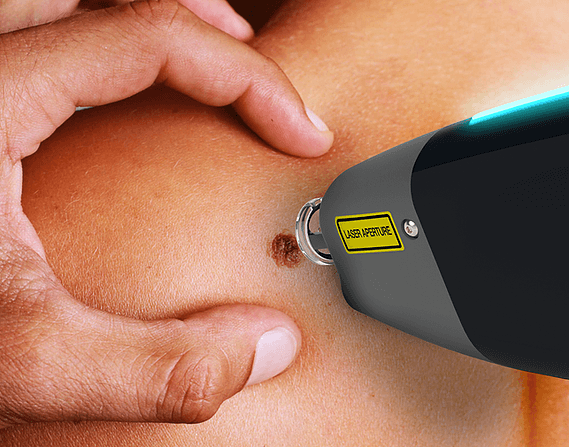Skin Cancer Screening Frequency
Checking for skin cancer is crucial for both preventing and detecting skin cancer. Skin cancer is a common and potentially dangerous condition that affects a lot of people. Since early detection is crucial for successful treatment, routine skin checks are crucial for maintaining the health of your skin. In this blog post, we will go over recommended screening intervals for skin cancer and emphasise how crucial it is to prioritise the health of your skin.
Why and When Professional Examination Is Required?
The general recommendation is to have a professional examination at least once a year when it comes to skin cancer screenings. The frequency of this, however, may vary depending on a person’s skin type, history of sun exposure, family history of skin cancer, and any previous skin abnormalities. Speak with a dermatologist or other skilled healthcare provider to get guidance on the best interval for your situation.
Importance of Early Diagnosis
Skin cancer screenings are necessary for the early diagnosis and treatment of skin cancer. During these examinations, a medical professional will examine your skin to look for any suspicious lesions, moles, or changes in pre-existing moles. They might use a dermatoscopy, a portable magnifying device, to examine your skin more closely. Early detection allows for prompt intervention and increases the chance that a patient’s treatment and recovery will be successful.
Monthly self-examinations are crucial in addition to routine professional skin checks. Keep track of any moles, growths, or skin lesions that appear new or are changing on your body. To identify potential skin cancer warning signs, use the “ABCDE” rule.
What is ABCDE Rule?
Asymmetry: A mole or spot with one half that is different from the other.
Border: An uneven, fuzzy, or jagged edge.
Colour: The mole or spot’s uneven or multicoloured colouring.
Diameter: Greater than 6 millimetres; comparable to the size of a pencil eraser.
Evolution: Any changes in size, shape, colour, or appearance over time.
If you notice any unsettling changes or have any skin-related concerns, it is critical to contact a medical professional as soon as possible.
Choosing a Reputable Dermatology Clinic
It is critical to pick a reputable dermatology clinic to guarantee that you receive thorough skin care. We are a reputable clinic with a focus on the prevention, detection, and treatment of skin cancer at The Skin Cancer and Cosmetic Clinic. Our professionally trained staff provide individualised care and guidance to protect the health of your skin through the expertise of our team of qualified dermatologists and medical specialists.
Along with regular skin checks, establishing sun-safe behaviours is crucial for preventing skin cancer. You can shield your skin from UV rays that harm it by wearing protective clothing, applying a broad-spectrum sunscreen, seeking out shade during peak sun hours, wearing sunglasses to block out the sun’s rays, and using protective eyewear. The Cancer Council Australia offers helpful tools and knowledge on sun safety and preventing skin cancer.
Routine skin examinations and checks are essential for the early identification and management of skin cancer. The standard recommendation is to have a professional examination at least once a year, but it is crucial to speak with one of our healthcare providers to determine the best frequency based on your particular risk factors. You can protect your skin and catch any potential skin cancer at the earliest possible stage by prioritising your skin’s health, engaging in self-examinations, and seeking professional care.




